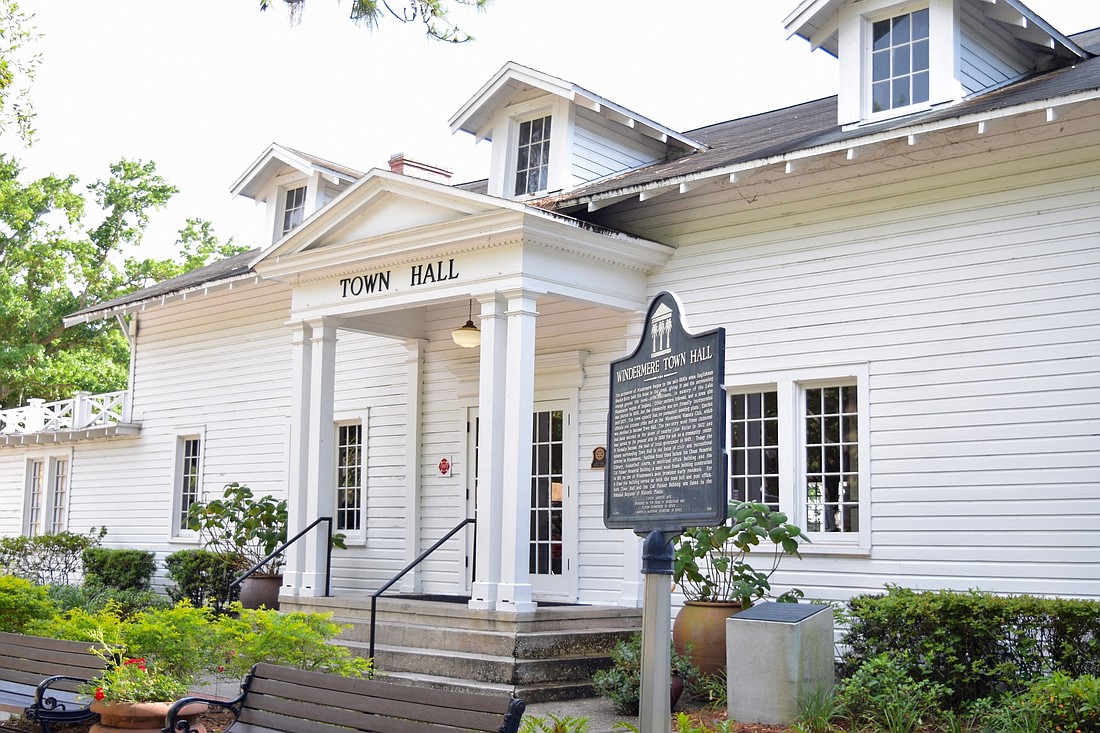- November 28, 2024
-
-
Loading

Loading

Windermere Town Council members officially approved the plan for Fiscal Year 2021-22 during a Sept. 20 budget hearing. The General Fund revenues and operating expenditures even out at $7,777,777 while the millage rate of 3.7425, in place since 2019, was adopted for another year.
The largest contributors to the General Fund revenue include $490,000 from the 1/2-cent sales tax, $335,274.95 from the solid waste tax, $200,000 from Windermere Wine & Dine and $745,000 from the American Recovery Act.
General Fund operating expenditures include legislative, administrative, clerical, financial, development services, public works, parks and recreation, police department, code enforcement and committees. The total stormwater fund expenditures total $350,884. That includes $112,558 for stormwater projects and $16,030 for capital equipment.
FIVE QUESTIONS WITH TOWN MANAGER ROBERT SMITH
1. One of the biggest impacts to the town’s 2020-21 Fiscal Year was the construction of new town facilities. When will they be complete, and how will that affect next year’s budget?
The grand opening of the facilities will be in February 2022. We have a loan payment each year of $327,000. However, we had to budget for temporary facilities and Public Works shed for this fiscal year. The money will be recouped in 2022-23 in the amount of $279,100. In addition, the balance of the Main Street Loan will be paid off in 2024 and the town will recoup $216,000.
2. What impact did COVID have on revenue?
The half-cent sales tax will be impacted, but unlike other municipalities, our tax base is mostly residential, with barely any commercial revenue, so the financial impact will be lessened.
3. What are some important projects for Fiscal Year 2021-22?
The West Second Avenue stormwater, road and potable water improvements project, along with the Bessie Basin and Butler Basin stormwater and potable water improvements projects. All three are covered under a Hazard Mitigation Grant Program of $3.3 million, which is funded through the Federal Emergency Management Agency. Potable water system aspects will be covered through the American Recovery Act.
4. What was the most significant challenge in balancing the budget?
Every year, we are looking at ways to provide adequate, affordable health care for employees. Each year, these costs go up, and we are put into a position to amend the existing plans (higher deductible, higher co-pay, etc.) or switch plans. We also need to be competitive with other organizations so we retain the employees we have.
Also, estimating revenues versus the increasing costs for goods and services. This is always a moving target. You want to be conservative enough so you are not looking at making cuts to the budget six months in. However, you use the past to predict the future. But with an anomaly (such as) the pandemic, it throws those numbers off. ... It’s a difficult balancing act.
5. The adopted budget and expenditures even out at $7,777,777. How unusual is that, and what were some challenges in making that happen?
It just worked out that way. It wasn’t intentional, but I may play those numbers in the lotto.